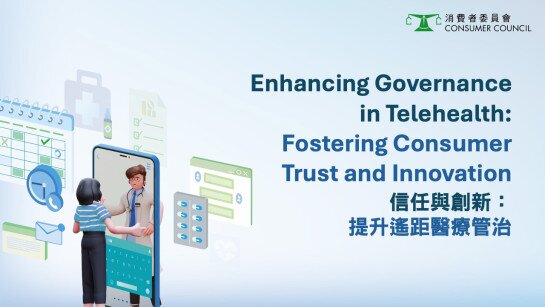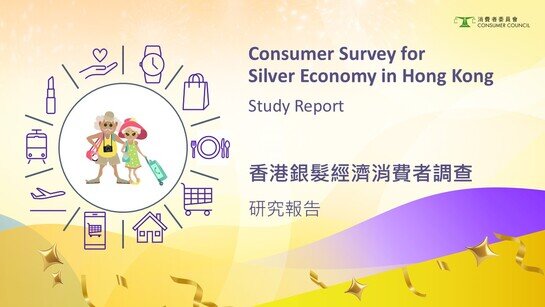Overview
Hong Kong as a world city is interacting and exchanging with international markets on many fronts, one of which is the provision of education services. Each year, many Hong Kong students receive education from overseas, and this participation trend will likely be on the rise in the coming years.
The benefits of a higher education, particularly one from a highly regarded overseas education institution, is typically viewed as a valuable investment in one’s career development, justified by the potential financial and personal rewards that will follow. Although education is viewed as a private good, in that most of the benefits of education accrue directly to those who are being educated, the social returns and benefits of having an educated citizenry mean that education can also be viewed as a public good. The benefits to Hong Kong in having a large number of citizens who have successfully attained quality education from either local or overseas education institutions is critical for its continued success.
The Market for Overseas Education Advisory Services
The supply of overseas education advisory services is a function of the demand for a customised service on overseas education options. Agencies are typically remunerated through commissions paid by overseas education institutions, and not by charging a direct service fee to parents/students seeking information and advice. This by its nature raises the concern of lack of impartiality in the service provided, given the advice could be driven by profitability. For example, more commercial rewards offered by one overseas education institution compared to another could influence the advice given, rather than serving the best interests of and/or meeting the needs of the particular student.
However, if a service provider does not represent an overseas education institution and is independent, and compensation is through the payment of charges to the student/parent for advisory and consultancy services, the student/parent is the client and the parties’ interests would, as a result, be much more aligned.
In summary, there were fundamental differences in findings between the Council’s surveys, the focus group discussions and the mystery shopping visits. This is accounted for by the fact that the research was carried out at different points in the students’ quest for information on overseas education, together with the fact that the findings could also simply be a reflection of the discrepancy between promises and reality, and expectation and experience. Such discrepancies have to be addressed by strengthening the quality and professionalism of the provision of overseas education advisory services in Hong Kong, so that students can be better protected.
Recommendations
The Council’s approach to making these recommendations is one of pragmatism, with considerations made to the time and cost required from society and the overall effectiveness of the recommendations in bringing results. In referencing overseas practices to the situation in Hong Kong, the Council proposes to strengthen the current self-regulatory regime, and to implement a series of initiatives that can be taken by the various stakeholders in the sector.
Recommendations to the industry
While the Hong Kong International Education Consultants’ Association (HKICEA) has a code of conduct (the Code) for its members to follow, the Code could be strengthened to cover the following areas:
- Ethical standards and good industry practices – The Council encourages the HKIECA to review its Code regularly to ensure that its guidelines follow the standards and momentum of international markets.
- Guidelines to cover relevant regulations for consumer protection – The Council recommends that the Code be expanded to include specific guidelines on important regulations on the protection of privacy, what constitutes unfair trade practices and the prohibition of misleading representations to ensure that industry practitioners comply with the corresponding spirit and legal requirements.
- Disclosure of representation and the receipt of rewards for making referrals - To assist consumers to properly assess the impartiality of the overseas education advisers before deciding who to engage, service providers should be obliged to disclose or display the existence of any commissions or business incentives from overseas education institutions. A price list should be properly displayed and made available to consumers on charges related to the provision of certain services.
- Qualifications of consultants – Specific guidelines should be set in the Code for industry practitioners on the types of qualifications which they can present and the form of display to ensure that consumers have a better understanding of who they are dealing with, and to provide a basis on which to challenge any misrepresentations that might be made. The HKIECA should also offer consumers an easily accessible avenue to validate the legitimacy of the consultant’s claims.
- Professional training requirements – The Council’s study shows that there is a need to strengthen the professional knowledge of some of overseas education advisory service providers through introducing a quality assurance mechanism for member consultants, in particular, with regard to a standard number of training hours they have to attend to learn its Code, to ensure that they follow the professional standards required in the industry. Furthermore, to serve as a constant reminder of acceptable conduct, regular training on relevant legislation prohibiting behaviour such as misleading representations should be organised.
- Advice on safety of the proposed destination – In the course of dealing with partner education institutions, consultants should seek facts and figures from the institutions on student safety on and near the campuses, and in turn incorporate such information in the advice given to consumers at the early stage of engagement to enable them to make an informed choice on destination.
- Promoting the use of service contracts – The Council is of the view that even if free overseas education advisory services are provided, a service agreement with explicit terms and conditions would greatly assist transparency and improve the professionalism of the sector. The Council recommends that the sector should advocate the use of service contracts to ensure that both consumers and consultants understand their terms of engagement clearly, fairly and in a timely manner.
- A list of consultants for public reference – To facilitate the searching by consumers for services of overseas education advisers and to enable them to validate the service providers’ professional identities from a credible source, the HKIECA is recommended to release a list of service providers based on its verification of individual membership profiles.
- A redress mechanism for dispute resolution – The Council also recommends that, through the HKIECA, a redress mechanism with an independent complaint review committee should be created to handle unresolved complaints by aggrieved students and parents against its members.
Recommendations to the Government
The Government can play a critical role in facilitating the industry to improve its Code and equip its members with the right level of knowledge and expertise to deliver quality services, to ensure that Hong Kong’s business practices meet the world’s best practice.
- Decision-making tools – It is important that students have some basic understanding of what they are interested in before making decisions on which career/education path to follow. The Council recommends that the Government considers increasing the subsidies provided through the existing subsidy schemes, in particular, through the Home Affairs Bureau, namely the Funding Scheme for Youth Life Planning Activities and the Career and Life Planning Grant administered by the Education Bureau. Increased funding in this area could serve to strengthen the ability and resources of career masters in local secondary schools to more effectively match students’ aspirations, capabilities and personalities with a suitable choice of higher education.
- Provide a signpost for consumers – In order to raise the knowledge level of consumers (i.e., student/parents) so that they are aware of what they should do when engaging the services of overseas education advisers, consumer information guides should be produced, containing vital tips and links to key professional bodies on qualification conversion and recognition in Hong Kong. The Council recommends the Government takes the lead in this regard, with support from professional bodies, the industry, as well as the Council.
- Funding support to the industry – The Council considers that relying solely on the industry or the relevant associations to raise their own funds to pursue the proposed measures would most likely result in slow progress. Some form of support for the industry from the Government, no matter whether it is in the form of one-off seed capital or facilitation in funding applications, would help to accelerate the development.
- Develop guidelines on promotional materials – The Council urges the Government to seek cooperation of the industry to develop advertising guidelines in order to enhance protection to students seeking overseas education advice.
The Full Report can be downloaded from here.











